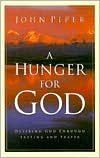Quotes about Fasting
In vain will ye fast, and pretend to be humbled for our sins, and make confession of them if our love of sin be not turned into hatred; our liking of it into loathing; and our cleaving to it, into a longing to be rid of it; with full purpose to resist the motions of it in our heart, and the outbreakings thereof in our life; and if we turn not unto God as our rightful Lord and Master, and return to our duty again.
Let us say something about fasting, because many, for want of knowing its usefulness, undervalue its necessity, and some reject it as almost superfluous; while, on the other hand where the use of it is not well understood, it easily degenerates into superstition. Holy and legitimate fasting is directed to three ends; for we practice it either as a restraint on the flesh, to preserve it from licentiousness, or as a preparation for prayers and pious meditations, or as a testimony of our humiliation in the presence of God when we are desirous of confessing our guilt before him.
Fasting in the biblical sense is choosing not to partake of food because your spiritual hunger is so deep, you determination in intercession so intense, or your spiritual warfare so demanding that you have temporarily set aside even fleshly needs to give yourself to prayer and meditation.
David Brainerd prayed with fasting for the Lord’s leadership regarding his entry into ministry. He said of his experience during that day, “I felt the power of intercession for precious, immortal souls; for the advancement of the kingdom of my dear Lord and Saviour in the world; and withal, a most sweet resignation and even consolation and joy in the thoughts of suffering hardships, distresses, and even death itself, in the promotion of it…. My soul was drawn out very much for the world, for multitudes of souls. I think I had more enlargement for sinners than for the children of God, though I felt as if I could spend my life in cries for both. I enjoyed great sweetness in communion with my dear Saviour. I think I never in my life felt such an entire weanedness from this world and so much resigned to God in everything.
Revised edition ed. by Philip E. Howard Jr., The Life and Diary of David Brainerd, Moody Press, 1949, p. 81.
One way to begin to see how vastly indulgent we usually are is to fast. It is a long day that is not broken by the usual three meals. One finds out what an astonishing amount of time is spent in the planning, purchasing, preparing, eating, and cleaning up of meals.
1. Fasting increases our sense of humility and dependence on the Lord (for our hunger and physical weakness continually remind us how we are not really strong in ourselves but need the Lord). 2. Fasting allows us to give more attention to prayer (for we are not spending time on eating). 3. [Fasting] is a continual reminder that, just as we sacrifice some personal comfort to the Lord by not eating, so we must continually sacrifice all of ourselves to Him. 4. Fasting is a good exercise in self-discipline, for as we refrain from eating food, which we would ordinarily desire, it also strengthens our ability to refrain from sin, to which we might otherwise be tempted to yield. 5. Fasting also heightens spiritual and mental alertness and a sense of God’s presence as we focus less on the material things of this world (such as food) and as the energies of our body are freed from digesting and processing food. 6. Fasting expresses earnestness and urgency in our prayers: if we continued to fast, eventually we would die. Therefore, in a symbolic way, fasting says to God that we are prepared to lay down our lives that the situation be changed rather than that it continue.
Excerpted from: Biblicaltraining.org, www.biblicaltraining.org/library/prayer-wayne-grudem#sthash.B6ILYAVS.dpuf. Used by Permission.
[The purpose of fasting is] to loosen to some degree the ties which bind us to the world or material surroundings as a whole in order that we may concentrate all our spiritual powers upon the unseen and eternal things.
If the solemnities of our fasting, though frequent, long, and severe, do not serve to put an edge upon devout affections, to quicken prayer, to increase Godly sorrow, and to alter the temper of our minds, and the course of our lives, for the better, they do not at all answer the intention, and God will not accept them as performed to Him.
Although these abstinences give some pain to the body, yet they so lessen the power of bodily appetites and passions, and so increase our taste of spiritual joys, that even these severities of religion, when practiced with discretion, add much to the comfortable enjoyment of our lives.
Fastings and vigils without a special object in view are time run to waste.
Fasting, if we conceive of it truly, must not…be confined to the question of food and drink; fasting should really be made to include abstinence from anything which is legitimate in and of itself for the sake of some special spiritual purpose. There are many bodily functions which are right and normal and perfectly legitimate, but which for special peculiar reasons in certain circumstances should be controlled. That is fasting.
Of fasting I say this: It is right to fast frequently in order to subdue and control the body. For when the stomach is full, the body does not serve for preaching, for praying, or studying, or for doing anything else that is good. Under such circumstances God’s Word cannot remain. But one should not fast with a view to meriting something by it as by a good work.
If you say “I will fast when God lays it on my heart,” you never will. You are too cold and indifferent to take the yoke upon you.
Prayer is reaching out after the unseen; fasting is letting go of all that is seen and temporal. Fasting helps express, deepen, confirm the resolution that we are ready to sacrifice anything, even ourselves to attain what we seek for the kingdom of God
Prayer is reaching out and after the unseen; fasting, letting go of all that is seen and temporal. Fasting helps express, deepens, confirms the resolution that we are ready to sacrifice anything, even ourselves, to attain what we seek for the kingdom of God.
Fasting helps express, deepens, confirms the resolution that we are ready to sacrifice anything, even ourselves, to attain what we seek for the kingdom of God.
Bread magnifies Christ in two ways: by being eaten with gratitude for His goodness, and by being forfeited out of hunger for God Himself. When we eat, we taste the emblem of our heavenly food – the Bread of Life. And when we fast we say, “I love the Reality above the emblem.” In the heart of the saint both eating and fasting are worship. Both magnify Christ. Both send the heart – grateful and yearning – to the Giver. Each has its appointed place and each has its danger. The danger of eating is that we fall in love with the gift; the danger of fasting is that we belittle the gift and glory in our will-power.
Christian fasting, at its root, is the hunger of a homesickness for God.
Christian fasting is a test to see what desires control us. Fasting reveals the measure of food’s mastery over us – or television or computers or whatever we submit to again and again to conceal the weakness of our hunger for God. A real lived-out human act of preference for God over His gifts is the actual lived-out glorification of God’s excellence for which He created the world. Fasting is not the only way, or the main way, that we glorify God in preferring Him above His gifts. But it is one way.
The absence of fasting is the measure of our contentment with the absence of Christ.
What are we salves to? What are our bottom-line passions? Fasting is God’s testing ground – and healing ground. Will we murmur as the Israelites murmured when they had no bread? Will be leave the path of obedience and turn stones into bread? Or will we “live by every word that proceeds out of the mouth of God?” Fasting is a way of revealing to ourselves and confessing to God what is in our hearts.
Man Shall Not Live by Bread Alone, Sermon, January 15, 1995, www.DesiringGod.org. Used by Permission.
That’s what I think fasting is at heart. It’s an intensification of prayer. It’s a physical explanation point at the end of the sentence, “We hunger for you to come in power.” It’s a cry with your body, “I really mean it, Lord! This much, I hunger for you.”
When the Bridegroom Is Taken Away, They Will Fast – With New Wineskins, January 8, 1995, www.DesiringGod.org. Used by Permission.
Why do we fast as disciples of Jesus? Because our souls feast on the glory of God. Fasting is an external expression of an internal reality. When we fast for a meal or a day or a week, we remind ourselves that more than our stomachs long for the pleasure of food, our souls long for the presence of God. We are satisfied in Him and by Him in a way that nothing in this world can compare to – not even the basic daily necessity of food. Fasting makes sense as a discipline in the Christian life only if it is connected with desire for Christ. When we fast, we say, “More than we want our hunger to cease, we want your Kingdom to come!”
Taken from Follow Me by David Platt. Copyright © 2013 by David Platt. Used by permission. Website: Radical.net. Page 119.
By fasting, the body learns to obey the soul; by praying the soul learns to command the body.
A Puritan Golden Treasury, compiled by I.D.E. Thomas, by permission of Banner of Truth, Carlisle, PA. 2000, p. 79.
I want to insist that, contrary to popular opinion, fasting is not the suppression of desire but the intense pursuit of it. We fast because we want something more than food. We say No to food for a season only to fill ourselves with something far more tasty, far more filling, far more satisfying. That is to say, if one suppresses the desire for food it is only because he or she has a greater and more intense desire for something more precious – something of eternal value.
Copied from: Pleasures Evermore: The Life-Changing Power of Knowing God by Sam Storms, © 2000, p. 169. Used by permission of NavPress – www.navpress.org. All rights reserved. Get this book!
It is important to note that as Jesus was standing on the brink of the most important public ministry the world had ever seen [Mt. 4:1-11], He chose to fast! Have you ever paused to reflect on the eternal consequences of what transpired in the wilderness of Judea those forty days? Heaven and hell hung in the balance. Had Jesus wavered, had He faltered, had He balked, all hope of heaven would have been dashed on the very rocks with which the enemy tempted Him. Of the dozens of things Jesus might have done to withstand temptation, He is led by the Spirit to fast.
Copied from: Pleasures Evermore: The Life-Changing Power of Knowing God by Sam Storms, © 2000, p. 172. Used by permission of NavPress – www.navpress.org. All rights reserved. Get this book!
The ironic thing about fasting is that it really isn’t about not eating food. It’s about feeding on the fullness of every divine blessing secured for us in Christ. Fasting tenderizes our hearts to experience the presence of God. It expands the capacity of our souls to hear His voice and be assured of His love and be filled with the fullness of His joy… The point is that fasting is a feast. Fasting is all about eating! It is all about ingesting the Word of God, the beauty of God, the presence of God, the blessings of God. Fasting is all about spiritual gluttony! It is not a giving up of food for its own sake. It is about a giving up of food for Christ’s sake.
Copied from: Pleasures Evermore: The Life-Changing Power of Knowing God by Sam Storms, © 2000, p. 178-179. Used by permission of NavPress – www.navpress.org. All rights reserved. Get this book!
[Examples of biblical fasting]:
1. Fasting was practiced to avert God’s judgment and displeasure against His people (1 Sam. 7:6; Joel 2:12; Jonah 3:5-8; Jud 20:26; 1 Ki. 21:9; Jer. 36:6, 9.
2. The people of God often fasted in preparation for war, with a view to seeking God’s protection and blessing (2 Chron. 20:1-4; Joel 2:15.
3. Fasting was one way of seeking God’s help for deliverance from personal troubles and opposition (1 Ki. 21:27-29).
4. Fasting was often an expression of sincere and heartfelt repentance from sin and humility before God (Neh. 9:1-2; Psm. 35:13; Dan. 9:3; Joel 2:12-13; Jonah 3:5-8).
5. Fasting also signified or expressed mourning, sorrow, deep grief, and sadness (1 Sam. 20:34; 31:13; 2 Sam. 1:12; 12:15-23).
6. Ezra fasted as part of his request that God provide him with a safe journey (Ez. 8:21-23).
7. Fasting is a way of expressing one’s concern for the success of God’s work (Neh. 1:3-4; Dan. 9:3).
8. Fasting serves to humble and rebuke us as it reveals how much of our happiness depends on the external pleasures of eating (Psm. 69:10).
9. Fasting teaches us self-control and self-discipline (Phil. 3:19; Rom. 16:18; 1 Cor. 9:25-27).
Excerpted from: Pleasures Evermore: The Life-Changing Power of Knowing God by Sam Storms, © 2000, p. 169-171. Used by permission of NavPress – www.navpress.org. All rights reserved. Get this book!
So here’s how to avoid hypocrisy in fasting. If at any point, while fasting, you find yourself thinking, “God will love me more…God will surely be impressed with me now!” get in your car and go eat a McDonald’s Quarterpounder! If you are the least way tempted to believe, “God will bless me more…He will have no choice but to regard my righteousness!” go eat the biggest greasiest pizza you can find! If it crosses your mind, “I’m better than others who don’t fast, and I sure hope they recognize it as clearly as I do!” go to an all-you-can-eat smorgasbord!
Copied from: Pleasures Evermore: The Life-Changing Power of Knowing God by Sam Storms, © 2000, p. 181-182. Used by permission of NavPress – www.navpress.org. All rights reserved.
The abstinence is not to be an end in itself but rather for the purpose of being separated to the Lord and to concentrate on godliness. This kind of fasting reduces the influence of our self-will and invites the Holy Spirit to do a more intense work in us.
A Journey to Victorious Praying, Moody Publishers, 2003, p. 143-144.
Get this book!
Types of [fasting]…limited to the Bible: 1. Normal fast – Abstain from all food but not water (Mat. 4:2). 2. Absolute fast – Abstain from all food and drink (Ez. 10:6; Est. 4:16; Ac. 9:9). 3. Supernatural fast – [Absolute fast beyond physical abilities] (Dt. 9:9). 4. Partial fast – Restriction of diet rather than a total abstinence from all food (Dan. 10:3).
A Journey to Victorious Praying, Moody Publishers, 2003, p. 144-145.
Get this book!
It is accurate to say that Jesus does not command His followers to fast, but He certainly did expect fasting to be a part of their lives. Matthew 6 records His instructions about…fasting. The references to…“when you fast” clearly show His expectation that [this discipline] would be practiced by His people. In fact He plainly stated that after His departure from earth His followers “will fast” (Matthew 9:15).
Abuses of fasting:
1. Any attempt to earn God’s blessing through fasting is clearly in contradiction to the scriptural teaching that Jesus’ death and resurrection is the ground for every spiritual blessing. Fasting is the humble response that puts us in a place to receive the life and victory Jesus has won for us.
2. One should never view fasting as a substitute for repentance and obedience. To do so turns fasting into a form of penance (cf. Isaiah 59:1-22).
3. To use [fasting as a means] to impress others. This is clearly what Jesus forbids in Matthew 6:18. The question is not so much whether others know about our fast but rather why we want them to know about it. The Scriptures make reference to corporate fasts, and thus fasting is not always a private matter.
4. [When we use fasting] to belittle the kind gifts of God. While on the one hand we can fall in love with the gift of food and not the Giver, on the other hand we can fail to enjoy the food with the taste buds that He provided and glory in our will power.
Excerpted from: A Journey to Victorious Praying, Moody Publishers, 2003, p. 157-158.
Get this book!
Fasting is not intended to punish your flesh, but to focus on God.
Christian Fasting – What Does the Bible Say? www.GotQuestions.org. Used by Permission.
Fasting is a way to demonstrate to God, and to yourself, that you are serious about your relationship with Him. Fasting helps you to gain a new perspective and a renewed reliance upon God.
Christian Fasting – What Does the Bible Say? www.GotQuestions.org. Used by Permission.
Scripture does not command Christians to fast. It is not something that God requires or demands of Christians. At the same time, the Bible presents fasting as something that is good, profitable, and expected. The Book of Acts records believers fasting before they made important decisions (Acts 13:4; 14:23). Fasting and prayer are often linked together (Luke 2:37; 5:33).
Christian Fasting – What Does the Bible Say? www.GotQuestions.org. Used by Permission.
Fasting is calculated to bring a note of urgency and importunity into our praying, and to give force to our pleading in the court of heaven. The man who prays with fasting is giving heaven notice that he is truly in earnest… Not only so, but he is expressing his earnestness in a divinely-appointed way. He is using a means that God has chosen to make his voice to be heard on high.
In giving us the privilege of fasting as well as praying, God has added a powerful weapon to our spiritual armory. In her folly and ignorance the Church has largely looked upon it as obsolete. She has thrown it down in some dark corner to rust, and there it has lain forgotten for centuries. An hour of impending crisis for the Church and the world demands its recovery.
Fasting, rather than fleshly efforts, should be one of our first defenses against “persecution” from family, schoolmates, neighbors, or coworkers because of our faith. Typically we’re tempted to strike back with anger, verbal abuse, counteraccusations, or even legal action. But instead of political maneuvering, gossiping, and imitating the worldly tactics of our enemies, we should appeal to God with fasting for protection and deliverance.
Spiritual Disciplines for the Christian Life, 1991, p. 170, Used by permission of NavPress – www.navpress.com. All rights reserved. For more information please see the website www.BibicalSpirituality.org. Get this book!
There’s more to a biblical fast than abstaining from food. Without a spiritual purpose for your fast it’s just a weight-loss fast… And without a purpose, fasting can be a miserable, self-centered experience.
Spiritual Disciplines for the Christian Life, 1991, p. 164-165, Used by permission of NavPress – www.navpress.com. All rights reserved. For more information please see the website www.BibicalSpirituality.org. Get this book!
Fasting can be an expression of finding your greatest pleasure and enjoyment in life from God. That’s the case when disciplining yourself to fast means that you love God more than food, that seeking Him is more important to you than eating. This honors God and is a means of worshiping Him as God. It means that you stomach isn’t your god as it is with some (Philippians 3:19). Instead it is God’s servant, and fasting proves it because you’re willing to sublimate its desires to those of the Spirit.
Spiritual Disciplines for the Christian Life, 1991, p. 176, Used by permission of NavPress – www.navpress.com. All rights reserved. For more information please see the website www.BibicalSpirituality.org. Get this book!
Ten reasons to engage in Christian fasting:
1. To strengthen prayer.
2. To seek God’s guidance.
3. To express grief.
4. To seek deliverance or protection.
5. To express repentance and the return to God.
6. To humble oneself before God.
7. To express concern for the work of God.
8. To minister to the needs of others.
9. To overcome temptation and dedicate yourself to God.
10. To express love and worship to God.
Spiritual Disciplines for the Christian Life, 1991, p. 165-176, Used by permission of NavPress – www.navpress.com. All rights reserved. For more information please see the website www.BibicalSpirituality.org. Get this book!
Fasting does not ensure the certainty of receiving clear guidance from God. Rightly practiced, however, it does make us more receptive to the One who loves to guide us.
Spiritual Disciplines for the Christian Life, 1991, p. 168, Used by permission of NavPress – www.navpress.com. All rights reserved. For more information please see the website www.biblicalspirituality.org. Get this book!
Fasting must always have a spiritual purpose – a God-centered purpose, not a self-centered one- for the Lord to bless our fast. Thoughts of food must prompt thoughts for God. They must not distract us, but instead remind us of our purpose. Rather than focusing the mind on food, we should use the desire to eat as a reminder to pray and to reconsider our purpose.
Spiritual Disciplines for the Christian Life, 1991, p. 176-177, Used by permission of NavPress – www.navpress.com. All rights reserved. For more information please see the website www.biblicalspirituality.org. Get this book!
It’s silly when you put it in perspective. We think about missing a meal or two for the sake of becoming more like Jesus and we get anxious. And yet we willingly miss meals sometimes while shopping, working, recreating, or otherwise occupied. Whenever we believe another activity is at that moment more important, we will go without food fearlessly and without complaint. We need to learn that there are times when it can be not only more important, but much more rewarding to feast on God than food (Matthew 4:4). We should not fear the blessings of fasting.
Spiritual Disciplines for the Christian Life, 1991, p. 179, Used by permission of NavPress – www.navpress.com. All rights reserved. For more information please see the website www.biblicalspirituality.org. Get this book!
One of the ways the Holy Spirit prompts us to fast is through a need in our lives. If you need stronger prayer about a matter, that’s an invitation from the Lord to fast. If you need God’s guidance in an issue in your life, that’s an encouragement to fast. If you need deliverance or protection, that’s a time to fast. Will you do it? Or will you miss the unique opportunities for grace that He would extend to you through fasting?
Spiritual Disciplines for the Christian Life, 1991, p. 179, Used by permission of NavPress – www.navpress.com. All rights reserved. For more information please see the website www.biblicalspirituality.org. Get this book!
A biblical definition of fasting is a Christian’s voluntary abstinence from food for spiritual purposes. It is Christian, for fasting by a nonChristian obtains no eternal value because the Discipline’s motives and purposes are to be God-centered. It is voluntary in that fasting is not to be coerced. Fasting is more than just the ultimate crash diet for the body; it is abstinence from food for spiritual purposes.
Spiritual Disciplines for the Christian Life, 1991, p. 160, Used by permission of NavPress – www.navpress.com. All rights reserved. For more information please see the website www.BibicalSpirituality.org.
























